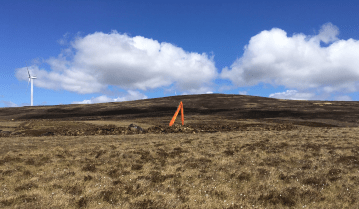European Week for Waste Reduction – Stop Food Waste
26th November 2014
What is European Week for Waste Reduction (EWWR)?
First launched in 2009, EWWR is an initiative aimed at promoting the implementation of awareness-raising actions about sustainable resource and waste management encouraging everyone to get involved from public and private organisations to individuals.
The theme for EWWR 2014 is, stop food waste. Get your company involved, click here for campaign ideas and more information to include: factsheets and tips to reduce food waste.
EWWR is a great opportunity for all businesses to get involved and to reflect upon how we manage food waste, how can we improve upon what we are doing already or how can we develop a strategy to reduce, re-use or recycle food waste.
Why stop food waste?
As quoted from the EWWR website:
- Around one third of the food produced globally is lost or wasted.
- Food waste represents a substantial loss of resources such as land, water, energy and labour.
Devolved regions across the U.K. have recognised the importance of reducing and preventing food waste and as such are introducing new legislation to drive businesses to implement improved food waste management.
- In Scotland, The Waste (Scotland) Regulations 2012, which came into force in January of this year, requires food businesses (except in rural areas) which produce over 50kg of food waste per week to present that food waste for separate collection.
- In Northern Ireland, from 01 April 2015, a ban will be imposed on landfilling of separately collected food waste. From 2016, all food waste producers producing over 50kg per week and from 2017, all food producers producing from 5kg-50kg per week, will be required to source segregate food waste.
However, regardless of the amount of food waste your business produces, good waste management makes sense.
Common food waste management strategies include:
- Segregate food waste from other waste streams. Use separate waste receptacles with clear signage. Where space is a challenge backhauling or back-loading may present a solution.
- Monitor and record food waste (type and volume or weight). This can then be translated into cash terms and used as a KPI.
- Create a waste policy and get senior management buy-in – this will demonstrate commitment.
- Set targets for food waste reduction/minimisation.
- Research/plan – engage stakeholders through training and communication. Invite their input to the process.
- Source produce locally, seasonally, plan and rotate menus more frequently.
- Alternatively source meat locally and use frozen veg to reduce waste from trimmings.
- Offer different portion sizes (e.g. S/M/L).
- Compost own food waste (if space is available to do so).
Want to improve waste management within your business?
Call Rob Duncan on: 028 9038 7047 or Jamie Roddie on: 0141 227 2306 or email info@mabbett.eu to discuss how we can assist. Our experienced environmental consultants can support with development or review of an existing waste strategy; compliance, and awareness training to increase employee engagement. Click here for more information on our waste reduction and compliance services.








 Previous
Previous 

